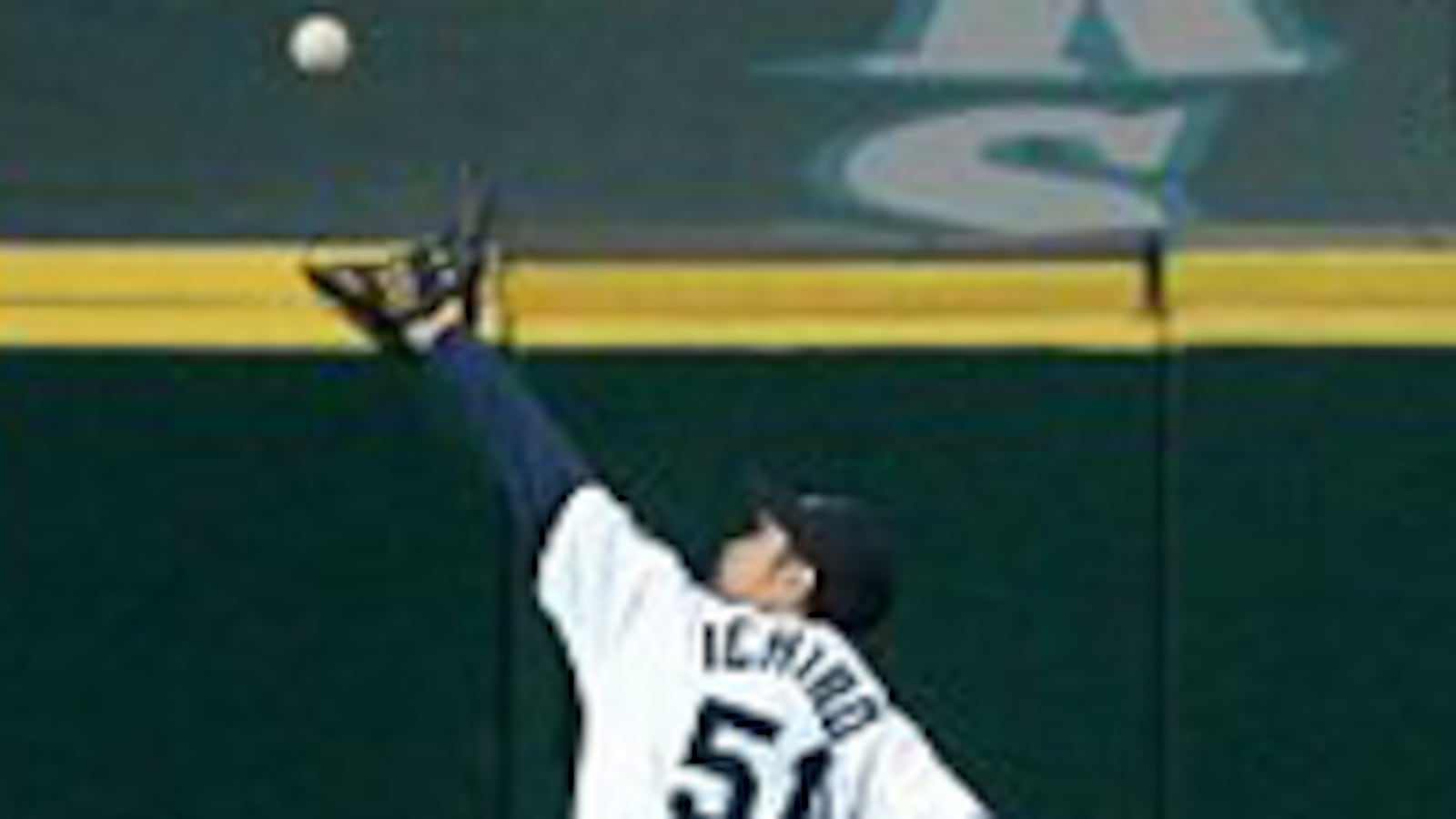The writer George Plimpton once proposed what he called the Small Ball Theory of sports writing: the smaller the ball, the better the literature. Football and soccer and basketball have yielded a few decent books, he pointed out, whereas baseball has inspired fine literary work by such authors as Philip Roth, John Updike, Bernard Malamud, David Halberstam, Ring Lardner, Walt Whitman . . .
Until the great ping-pong bildungsroman comes along, I’m dubious about Plimpton’s theory. Yet there’s no doubt that baseball has spawned a greater quantity of books, fiction and nonfiction, than any other sport. The latest of these is The Cambridge Companion to Baseball edited by Leonard Cassuto and Stephen Partridge—which, if you buy only one book for the baseball fan in your life, is probably the one to get. It’s certainly one I’ll keep coming back to after the season is over.
The eight-page chronology of the game that starts the book is worth the price of admission, almost. The 15 articles and seven short “interchapters” that follow present the Plimptonian hypothesis. But they also serve as a reminder that in a surprising number of ways, the history of baseball over the past century and a half has been the history of the United States. Articles like Leslie Heaphy’s piece on “Baseball and the color line” encapsulate the nation’s complex history of race relations, and Matthew Frye Jacobson’s essay on Curt Flood’s fight for free agency tells a story that still has the power to shock, 40 years later. Chapters on the growth of baseball in East Asia, Japan, and Latin America not only explore the nature of cultural hybridization (and you might even say imperialism), but offer insights into baseball as a microcosm for the global economy, for better or worse. We’re a net importer of baseball to Japan, for instance: Major League Baseball derives income from licensing and touring in Japan, and baseball tourism has become big business for Japanese travel to the U.S. By contrast, baseball has had a major impact on the economies of Latin American nations like Venezuela and the Dominican Republic, which export their best players to the U.S., along with certain questionable practices like steroid use (common in minor-league ball in those countries).

Alone among American sports, arguably, baseball is both art and commerce, with a folkloric tradition approaching religion. No sport has come close to generating the volume or diversity of artifacts—relics, almost—that baseball has, as David F. Venturo points out. Baseball fans are compulsive collectors, whether of broken bats or game-used balls, and thus baseball creates its own sub-economy within the larger economy. Venturo’s essay on the iconic Honus Wagner T-206 baseball card—“the palimpsest on which people write their baseball fantasies”—is fascinating and might even be funny, if anything that goes for $2.8 million at auction can be said to be funny.
The book’s most sobering and valuable article may be the full-length chapter on “Cheating in Baseball.” Cassuto and Partridge have structured this book so artfully that by the time we reach David Luban and Daniel Luban’s essay, their assertion that “cheating belongs to the fabric of the game” makes perfect sense. The preceding articles lay out all the economic and social reasons for cheating, and then the Lubans slip us another one: “the odd seductiveness of cheating in the eyes of fans has to do with our national love-hate relationship with formal rules and authority.”
This American ideal of baseball, with its ambivalent relationship toward cheaters and cheating, shares a fundamental worldview with the classic American hard-boiled detective novel.

And here it struck me what this book has in common with Leonard Cassuto’s last book, an academic study of hard-boiled fiction ( Hard-Boiled Sentimentality: The Secret History of American Crime Fiction). This American ideal of baseball, with its ambivalent relationship toward cheaters and cheating, shares a fundamental worldview with the classic American hard-boiled detective novel. In both environments, the good guys are supposed to win, the bad guys are supposed to be punished, and the rules are supposed to be enforced with a ruthlessness that cares nothing for human frailties. But as the book’s final short piece—on the sad case of Pete Rose—points out, lines in the real world aren’t always as bright as the lines between the bases. Sometimes, despite ourselves, we want to give the scoundrels a break.
Plus: Check out Book Beast for more news on hot titles and authors and excerpts from the latest books.
Joseph Finder is The New York Times bestselling author of numerous novels including Power Play, Killer Instinct, and Vanished. Visit his website.






